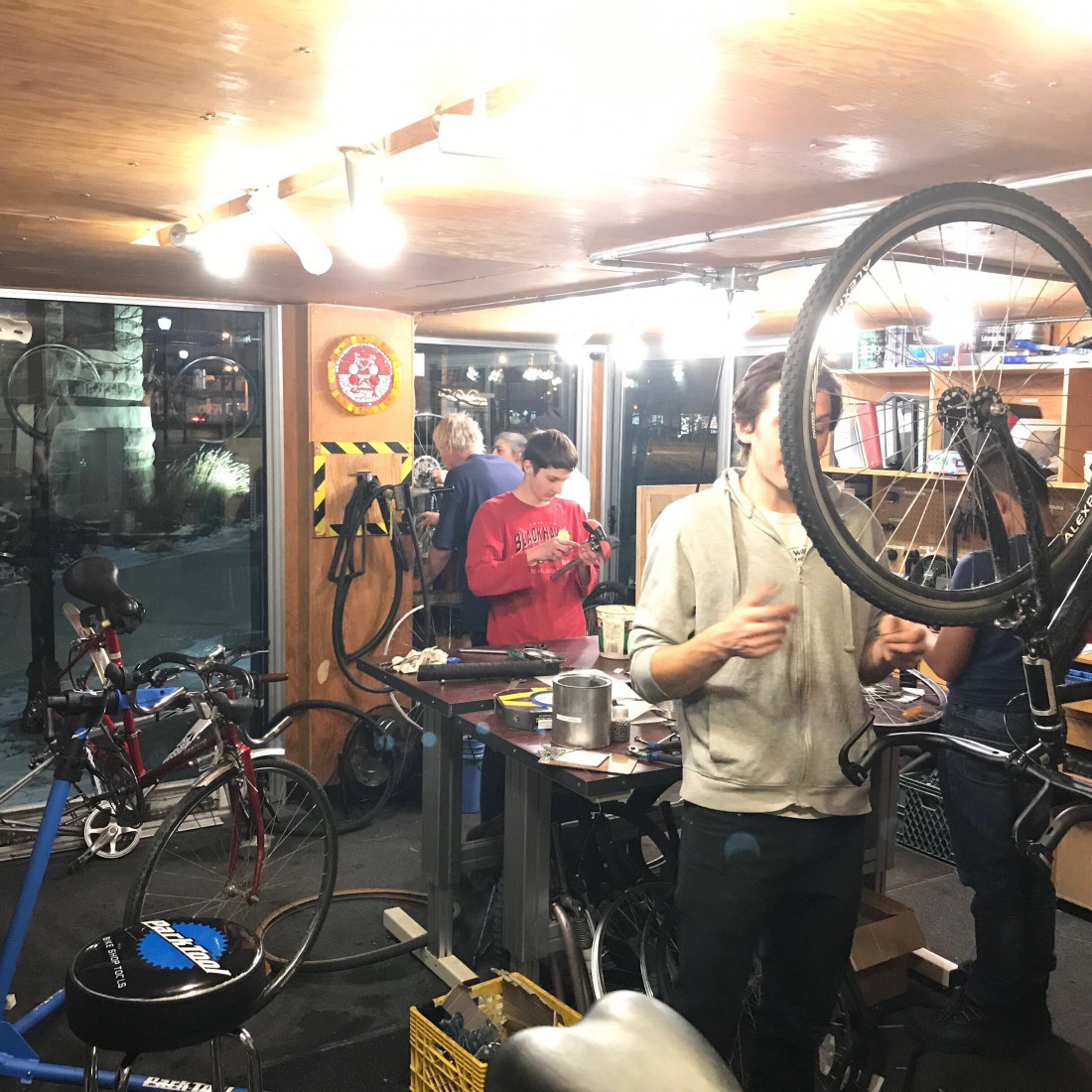Winnipeggers need to get their butts on bikes
‘It’s not about bike. It’s about the communities.’

The UWSA Bike Lab works to help people of all skill levels learn bike maintenance, navigation and safety.
The UWSA Bike Lab has been a downtown hub for cyclists in Winnipeg since 2011. The lab is an accessible on-campus pit-stop for students and community members who need help with bike maintenance, biking information and support.
Beyond creating equitable access to bikes and services, the UWSA Bike Lab coordinators’ outSPOKEn radio show aims to provide biking advice and tips, as well as discussion on how biking builds community.
According to its website, the lab works to help people of all skill levels learn how to take care of their bikes, adjust to different weather conditions and navigate the city’s bike routes.
For a long time, biking has often been categorized as something that is always extreme or intense, partially because advertising often adopts this angle. Now, it is important that there is a shift in mindset, because biking can be strictly a mode of transportation.
“You are not a ‘cyclist.’ You’re someone who rides their bike,” David Dorning, Bike Lab coordinator and co-host of the outSPOKEn radio show, says. “It could be a hobby. It could be a recreational activity for you. It could be all of those things, but it’s not extreme.”
There are many people who partake in biking as an extreme sport, but the Bike Lab and radio show try “to do a little bit for everybody, even people who don’t bike at all,” Sandra Leone, another Bike Lab coordinator and outSPOKEn co-host, says.
Access to safe and reliable transportation is a political issue. All levels of government have a role to play in ensuring Winnipeg is a cyclist-friendly city.
“We need dedicated, separated, connected and extensive cycling infrastructure. We need paths and trails and bikeways that are destinationoriented,” Dorning says. “We have a maintenance infrastructure budget ... that has not been dedicated to humanpowered pathways and network(s), and we need the network.”
Marginalized communities face many systemic barriers, including mobility issues and access to transportation. Accessibility to bikes, bike supports and purposeful biking routes throughout Winnipeg is a vital factor in the conversation about the promotion of equity in the city.
The conversation surrounding biking has often assumed a “white, middle-class ethos,” Dorning says, which excludes many of the people who actually ride bikes.
“This is a societal issue,” Dorning says. “This is why it is not about the bike. It’s about the communities and building those networks of support that allow (all people) to live a just life in a just society.”
The UWSA Bike Lab does exactly that. By creating equitable access to free services, the Bike Lab is empowering individuals to get on a bike and gain personal autonomy over their transportation.
A recent outSPOKEn episode examined how music and biking are related and promote connection, whether it be sharing favourite commute playlists with others or deciding who is controlling the aux cord in the Bike Lab.
“It’s eclectic,” Leone says. The lab is a safe space for everyone from all walks of life to build connections over a central interest, making the lab not just a hub for bike repairs, but a place for connection and community.
Published in Volume 76, Number 6 of The Uniter (October 21, 2021)







